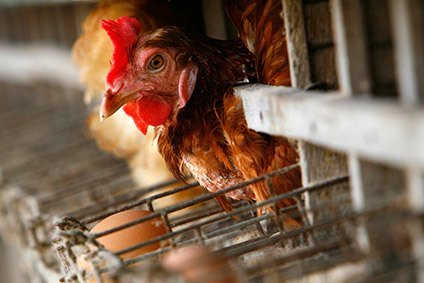
The Schwan Food Co. plans to source only cage-free eggs by the end of 2020.
“We are excited to have developed a clear path toward making our cage-free transition. As a frozen-food leader, we are committed to reviewing and working with our supply chain to ensure completion of this work as a part of our overall corporate responsibility commitment,” CEO Dimitrios Smyrnios said.

Discover B2B Marketing That Performs
Combine business intelligence and editorial excellence to reach engaged professionals across 36 leading media platforms.
The move to cage-free eggs will involve all of Schwan’s businesses, including its consumer brands and foodservice operations. The company did, however, concede its commitment is subject to the availability of certified cage-free eggs.
There has been a spike in demand for cage-free eggs throughout North America, with various food processors committing to switch to supply.
Mars Inc extended its commitment to use cage-free eggs in its products to the US, Canada and Australia by 2020. ConAgra Foods plans to go cage-free by 2025. Mondelez International set its cage-free target date at 2020; Nestle said it would take its brands cage-free by 2020. General Mills set a 2025 deadline, as did Kellogg.
Converting the egg supply to cage-free production represents a challenge. Nevertheless, investment is strong and, according to US Department of Agriculture estimates, there was a 37% increase in cage-free production between September 2014 and September 2015. Egg Farmers of Canada, the Canadian farm co-operative, also recently backed efforts to convert the industry to a cage-free footing.

US Tariffs are shifting - will you react or anticipate?
Don’t let policy changes catch you off guard. Stay proactive with real-time data and expert analysis.
By GlobalDataFor just-food’s detailed analysis of the cage-free egg trend, its drivers and implications, click here.





